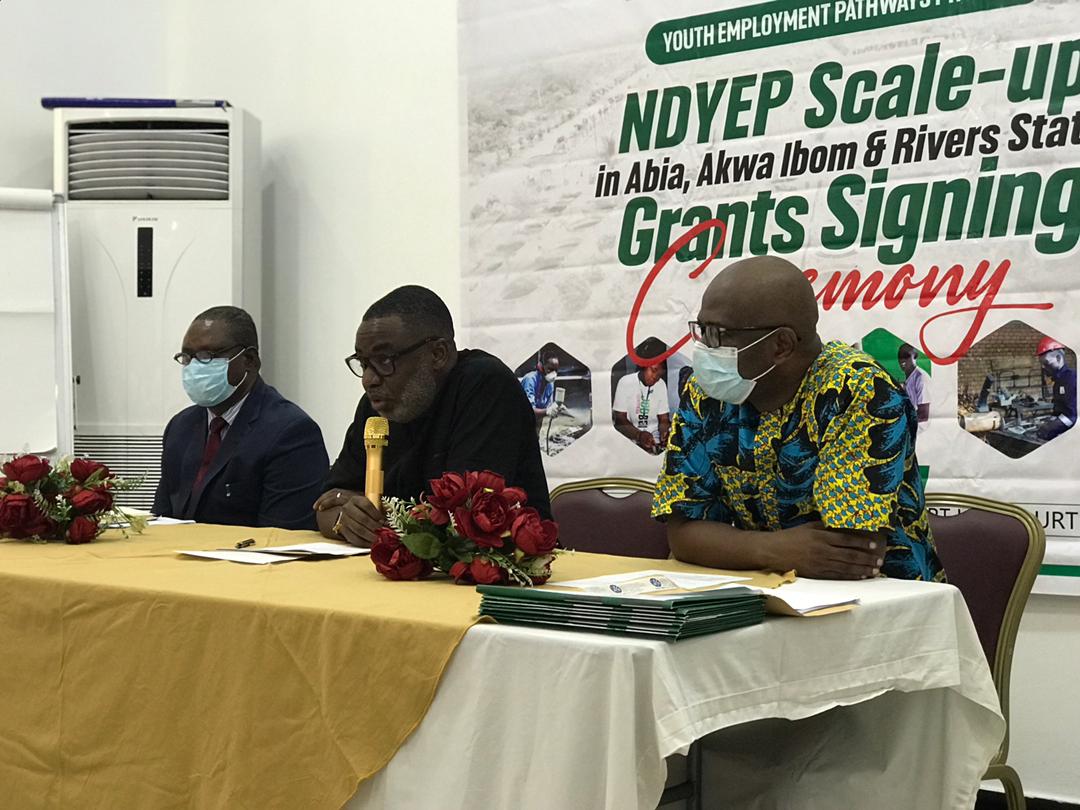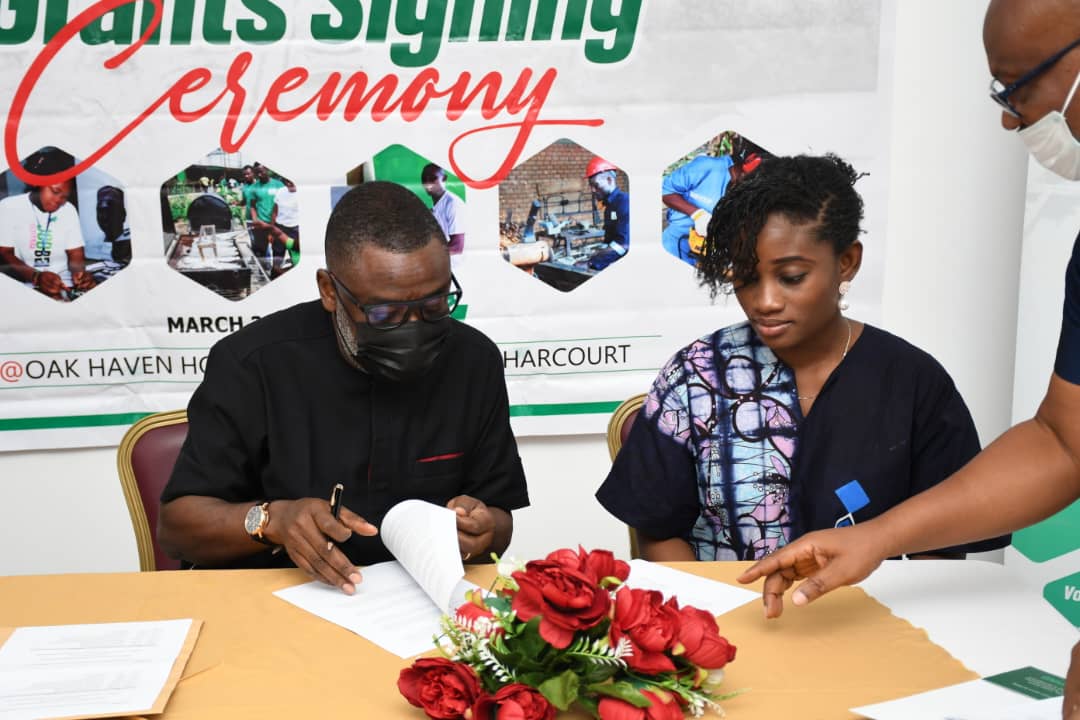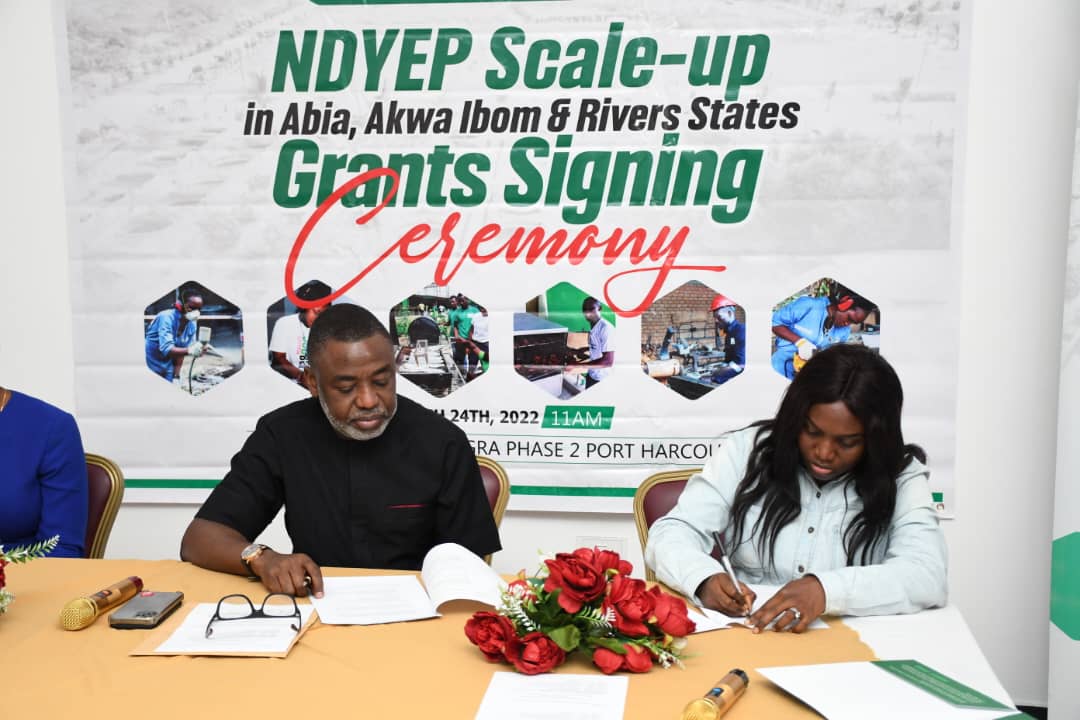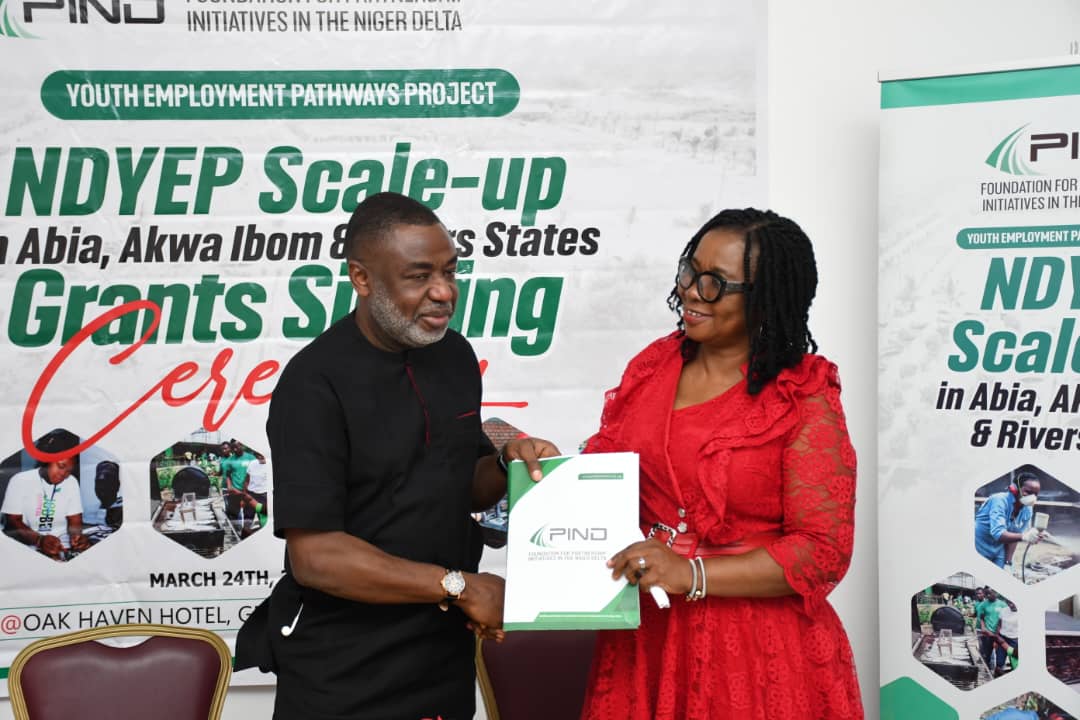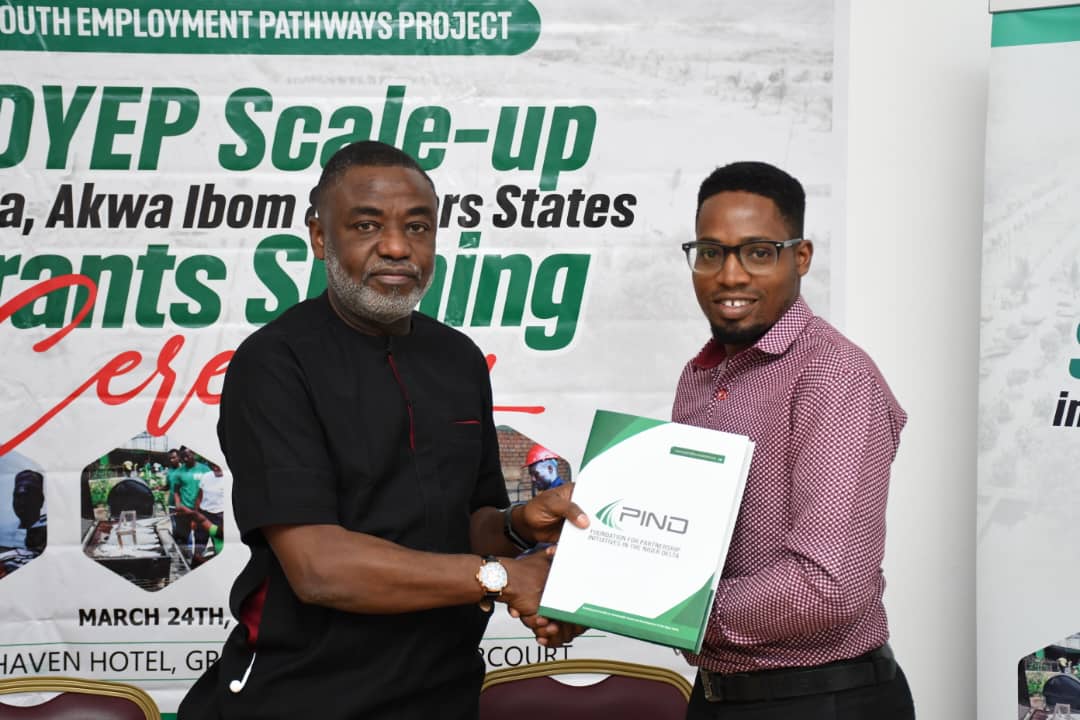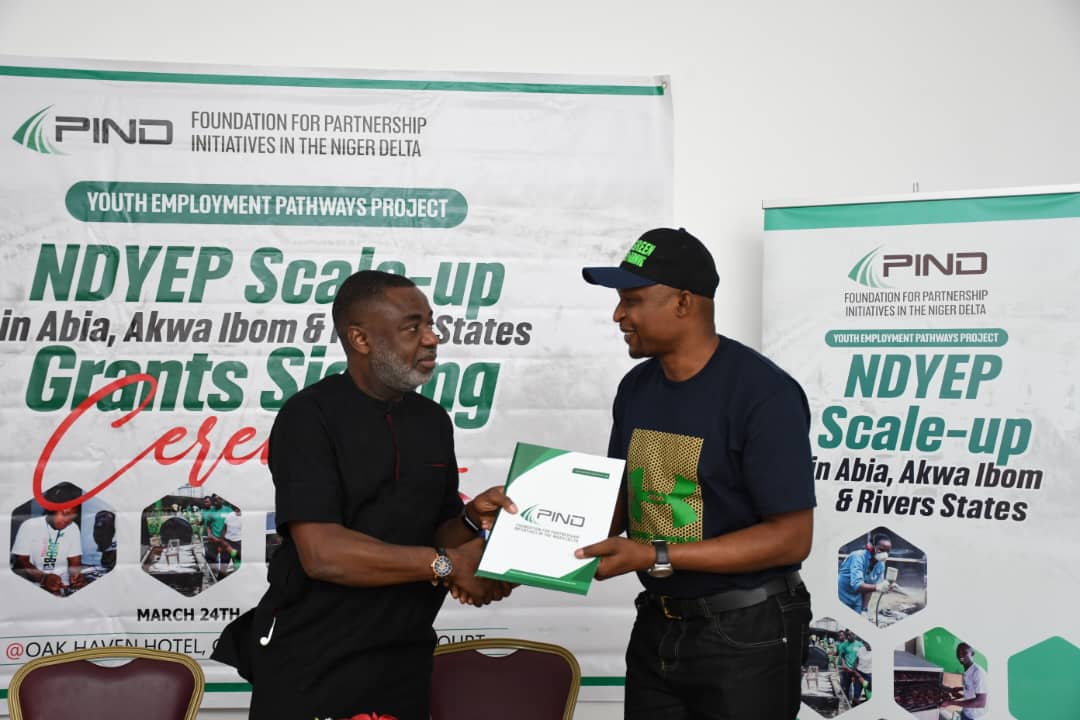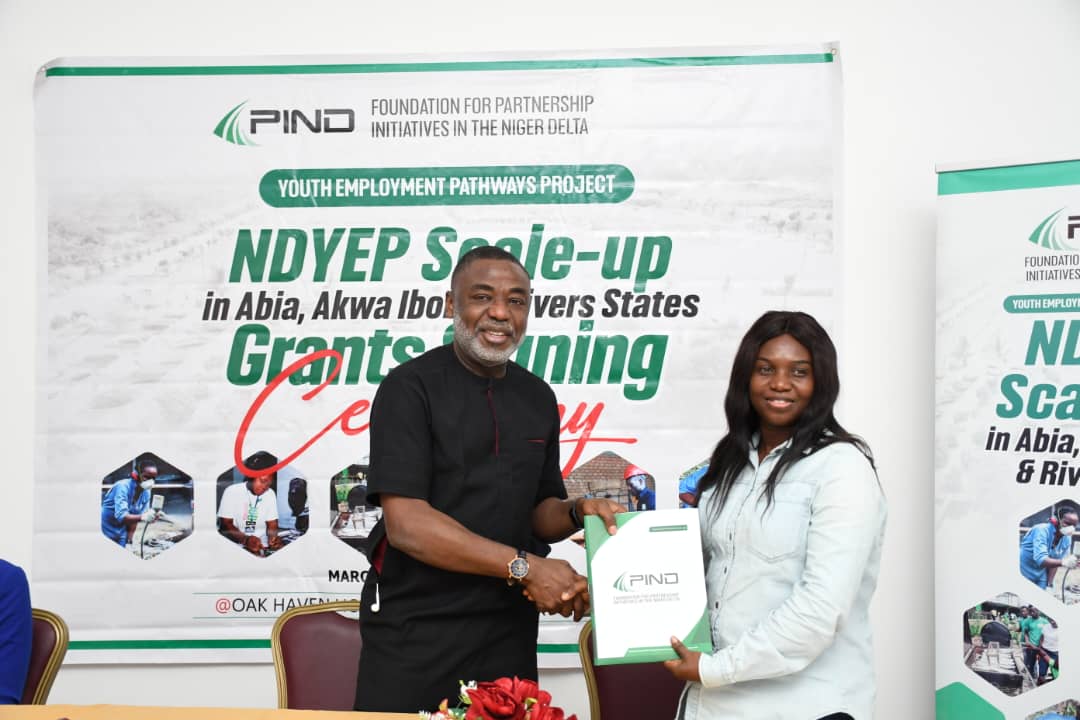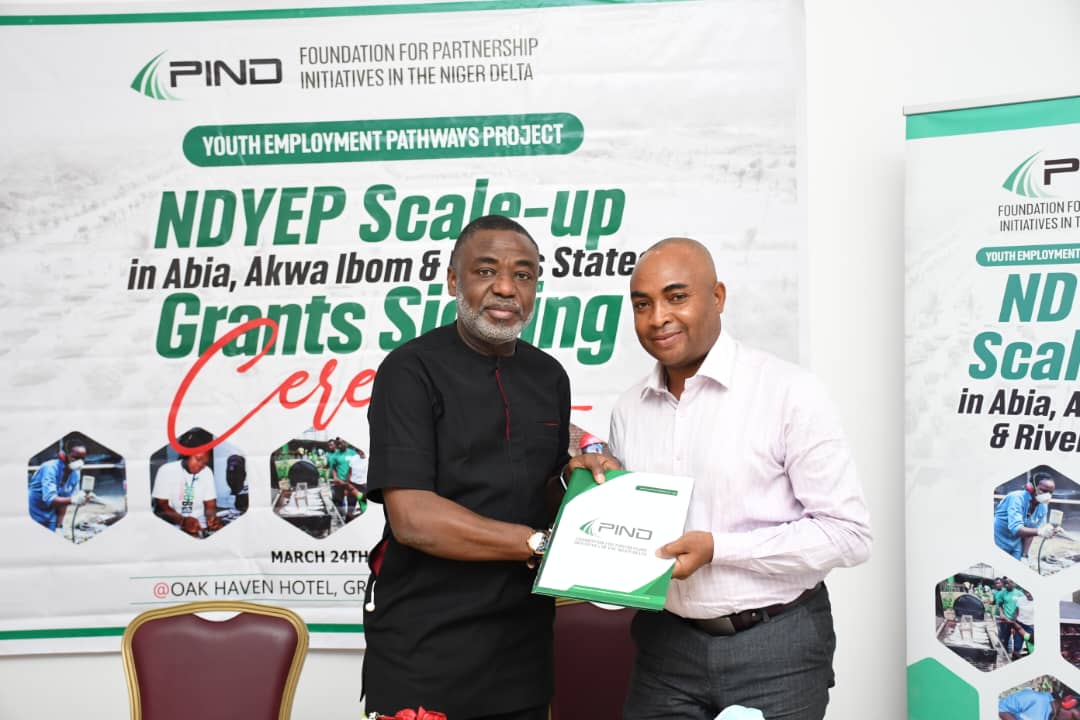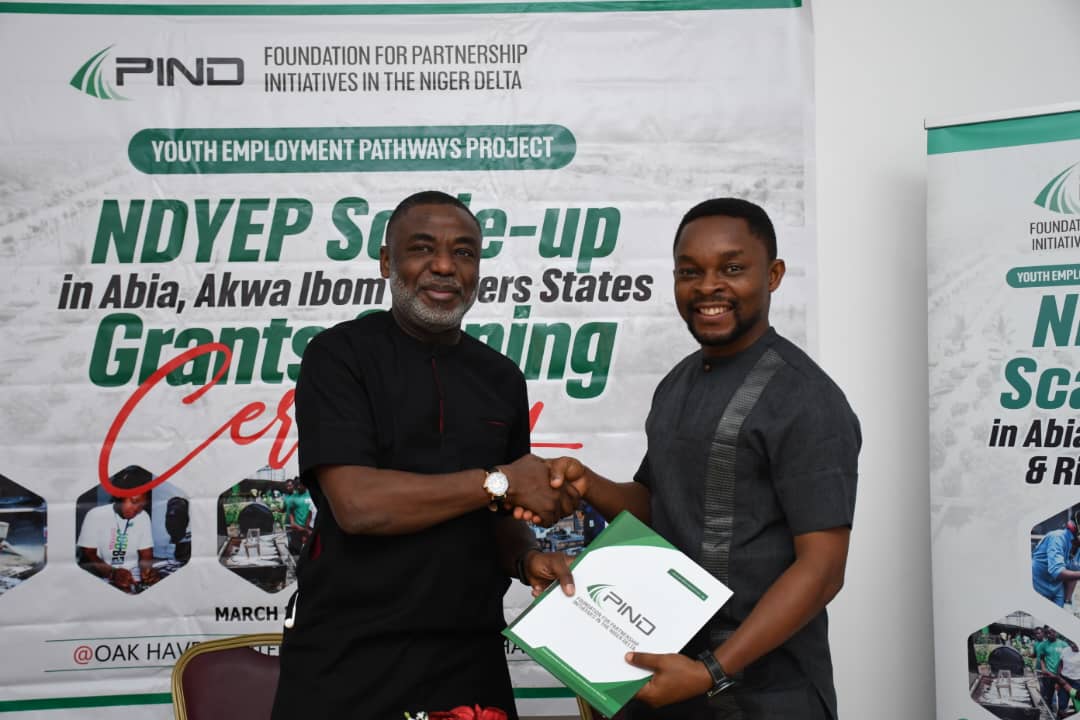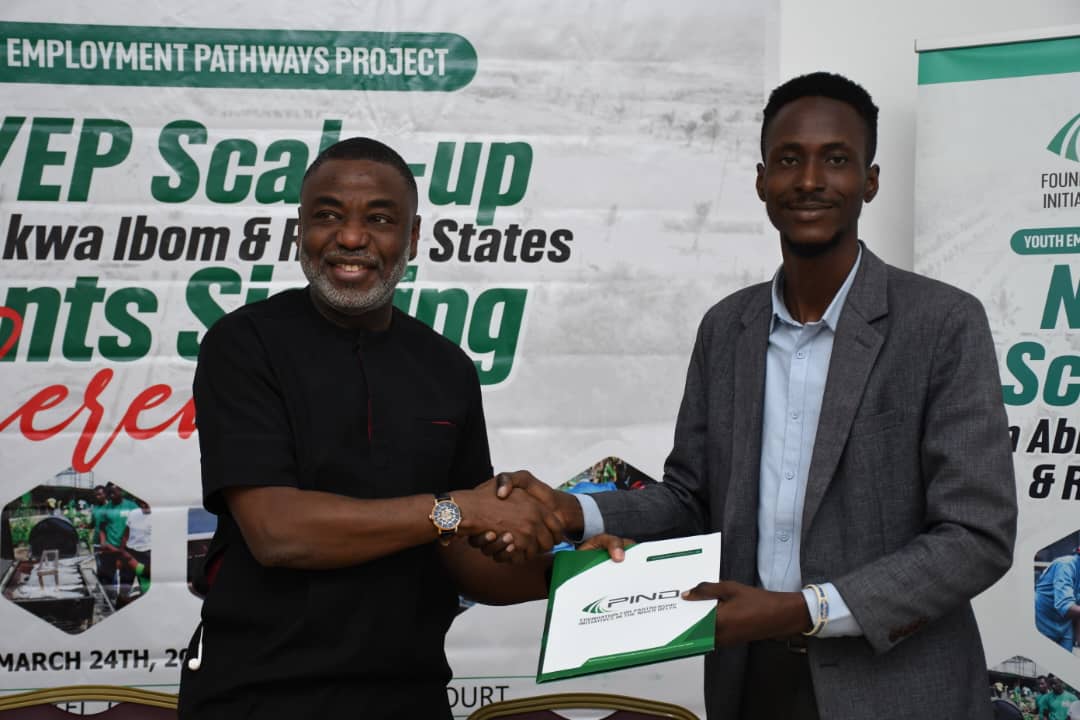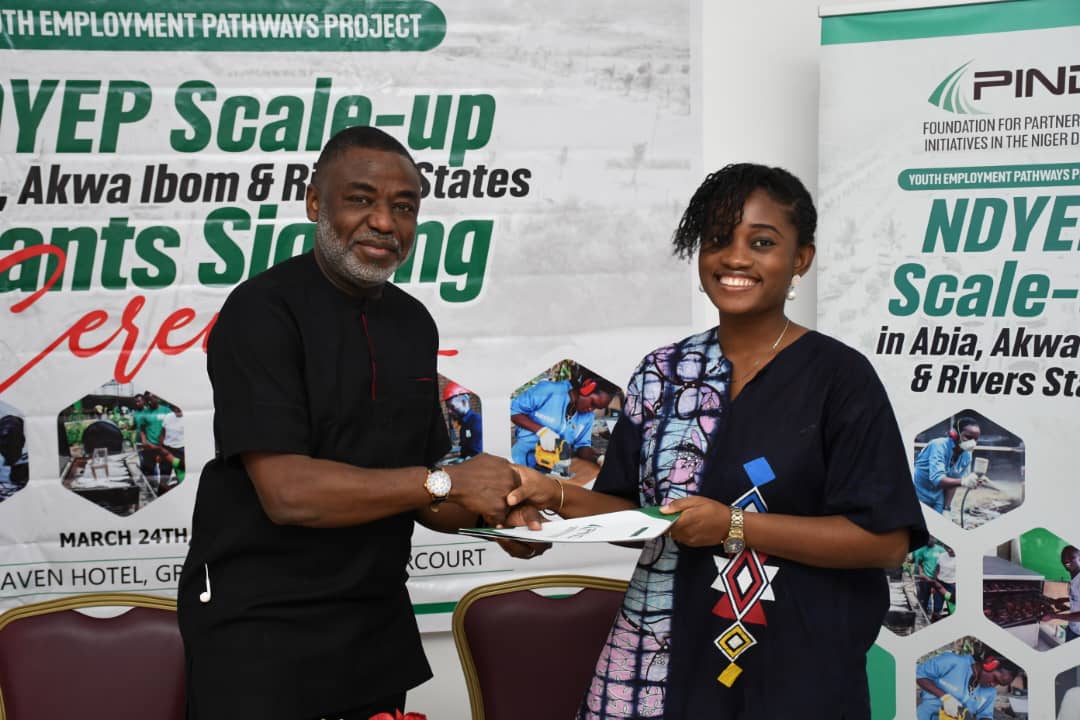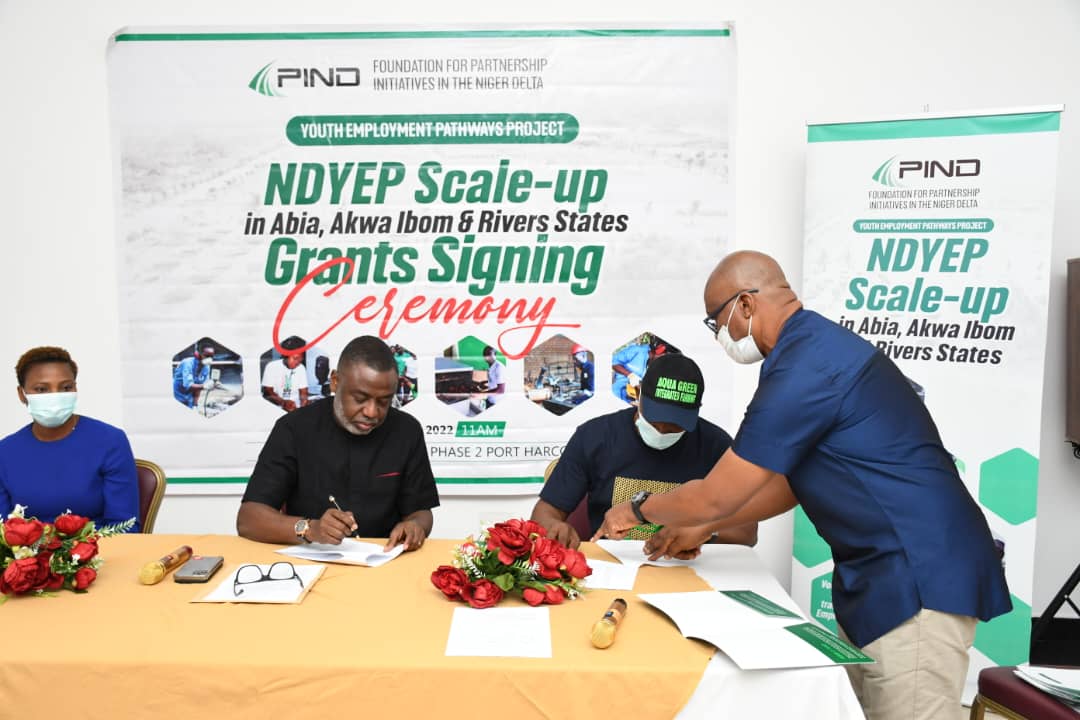
The Foundation for Partnership Initiatives in the Niger Delta (PIND) held a grant signing ceremony for the scale-up of its Niger Delta Youth Employment Pathways (NDYEP) project on March 24, 2022. The event which took place at PIND’s Economic Development Centre (EDC) in Port Harcourt, Rivers State was attended by the Director General of Port Harcourt Chambers of Commerce, Industry, Mines and Agriculture (PHCCIMA), Erasmus Chukunda; PIND’s Executive Director, Tunji Idowu; and the former NDYEP Project Lead and Coordinator, Emeka Ile, among other distinguished guests.
The ceremony was convened to sign agreements with and onboard the 11 implementing partners involved in the project’s scale up to Abia, Akwa Ibom and Rivers States. These partners – which include three women-led organizations: Kiara de Luke Academy, Ibiteinye Farms and The Footwear Academy – had previously worked with PIND during the pilot stage of the project in 2018. And beyond the initial project, had continued to support and mentor NDYEP start-up businesses as well as show great commitment to sustain the NDYEP framework as a sustainable business model.
In his speech, PIND’s Executive Director, Mr. Idowu commended the implementing partners. He said, “I would like to acknowledge our implementing partners whose performance during the pilot phase led to its success.”
He then urged them to improve their service delivery in the scale-up phase to ensure the youth participants make early transitions to jobs and entrepreneurship after vocational skills training.
He also explained PIND’s decision to scale up the project to the original pilot states was based on the fact that there still remained a need for it based on the lack of a feasible economic environment that opened doors for waged income.
He also called on the governments of the states within the Niger Delta to complement PIND’s efforts by adopting the NDYEP model and further scaling it up to cater for the youth in their states.
“Although a lot is still being expected from the Niger Delta State governments, efforts such as from NDYEP will continue to pose evident examples for replication,” he said.
Over N104million in grants were awarded to the 12 implementing partners to train 1,000 youth participants in various technical and soft vocational skills for at least 6 months, starting in May, 2022.
NDYEP was conceived in 2018 to develop models of youth training in which marginalized young people are trained in market-relevant skills and subsequently supported into sustainable jobs or enterprise. The pilot project was sponsored by Ford Foundation. Between 2018 and 2021, 4,355 youths were trained and equipped with in-demand vocational skills in four growing sectors (ICT, building construction, agriculture and finished leather). 2,033 of the successful participants were linked to immediate waged employment or supported to commence innovative enterprises of their own.
Following its success in the pilot states, the project was extended to Delta State in 2021 as the Delta Youth Employment Pathways Project.
The project provides skills training and reskilling for young school leavers as well as soft skills for reshaping attitude and behaviour.
